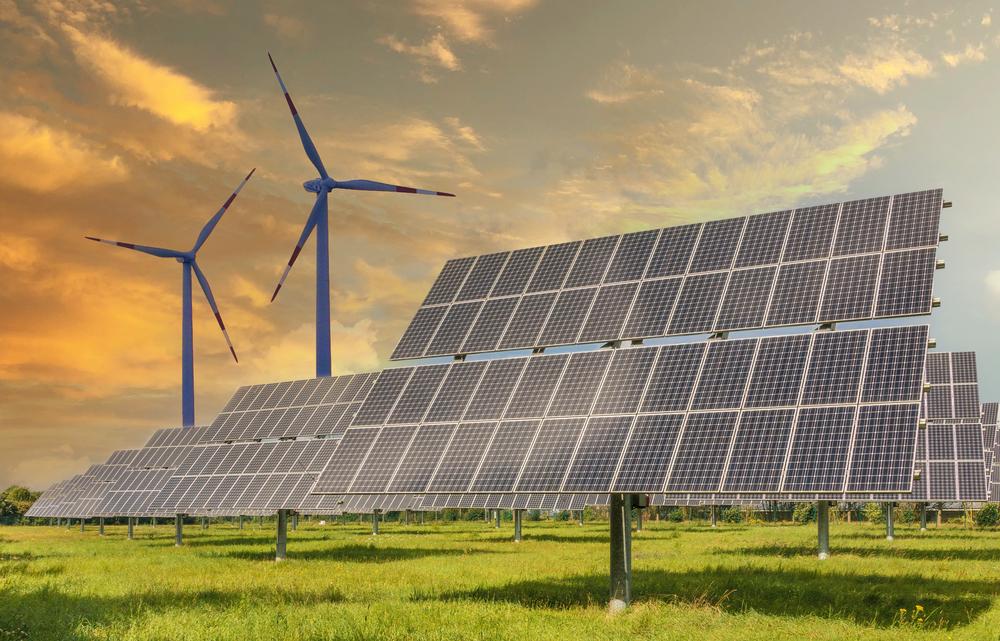As businesses across the world are looking for new ways to reduce their carbon footprint, renewable energy sources have become an increasingly attractive path forward.
Not only does investing in renewable energy allow companies to do their part for the environment by reducing emissions and saving non-renewable resources like oil, but it also holds several unique economic advantages that make it a wise financial decision as well.
In this post, we’ll dive into exactly how renewable energy can benefit your business, from lowering costs and increasing efficiency to improving employee morale and creating positive public perception of your organization. Read on to learn all about why investing in renewable energy makes smart business sense!
Basics Of Renewable Energy
Renewable energy is a cutting-edge technology transforming how we approach sustainability and protecting the environment. From solar farms to wind turbines, renewable sources of energy offer vast potential for reducing emissions, improving air quality and conserving natural resources.
By harnessing nature’s power, whether it be from the sun, wind or water, renewable energy systems provide clean and reliable electricity without generating harmful pollutants.
Innovative advances in this field have made significant strides in increasing efficiency while decreasing cost – making it an increasingly viable solution to traditional methods of energy production.
With a more conscious shift toward renewables, we can minimize our ecological footprint while harnessing the many advantages provided by this rapidly evolving industry.
Types Of Renewable Energies And What Are They Used For
There are many different types of renewable energies that are being used and explored today. These include solar, wind, hydropower, geothermal, and biomass energy.
Solar Energy

Solar energy is a viable renewable energy source that can power homes, businesses, and entire cities. By harnessing the power of sunlight and converting it into electricity, solar energy can bring significant economic benefits and contribute to global sustainability.
In addition to its economic benefits, this eco-friendly form of energy production can help reduce emissions, contribute to better air quality and even provide clean water in developing countries.
With these types of benefits, solar energy is an investment worth considering for anyone looking to save money while helping preserve our planet for generations to come.
Wind Energy
Wind energy is a powerful source of renewable energy that is already powering entire regions and economies across the world.
By harnessing the kinetic energy of the wind, wind turbines are able to generate electricity that can be used in an array of applications. The best wind resources are found in rural areas, such as ocean coasts and mountain ridges, with a steady flow of strong winds.
There, turbines efficiently convert the wind into mechanical power, which is then turned into electricity that can be used for various purposes, from providing individual homes with electricity to servicing entire cities.
Wind energy has rapidly become one of the fastest growing global clean energies and continues to revolutionize how mankind produces its much-needed electricity.
Hydropower
Producing electricity with the force of falling water almost sounds like something out of a fairytale. But that’s exactly what hydropower does – and it’s one of the most widely used sources of renewable energy today.
As the world attempts to reduce its dependence on fossil fuels and move towards a greener future, nations have come to recognize the potential in harnessing hydropower as an efficient and dependable energy source.
Simple yet effective turbines take advantage of naturally occurring waterfalls and rivers, transforming the kinetic energy into electricity that can be sent directly for use or stored later.
Advances in turbine technology mean that countries large and small can now access hydropower as a reliable electricity provider – from providing a full power grid to powering an individual home.
Hydropower shows no signs of slowing down: as we continue towards a bright renewable future, this clean energy source offers limitless possibilities.
Geothermal Energy
Using geothermal energy is an innovative and cost-efficient way to power homes, businesses and even entire cities. By channelling the natural heat from beneath the earth’s surface, we can tap into something that is truly renewable and sustainable.
Not only does this form of energy produce little or no emissions, but it can also provide heating systems with a constant source of hot water – making geothermal energy significantly lower on both operation and maintenance costs.
Moreover, geothermal energy is also exceptionally reliable because temperature below the surface tends to stay constant throughout the seasons. All in all, these factors make it clear why geography plays such a central role in taking advantage of this renewable energy source – one which will become increasingly utilised as people seek ways to reduce their environmental footprint while still having access to 24/7 electricity supply.
Biomass Energy
Biomass energy is a clean and renewable electricity source with great potential benefits. These include using renewable resources like wood, crop residues, manure, and other biological materials that can be used to generate electricity and for heating and cooling applications.
This form of energy promotes energy security for a region or country and provides economic development opportunities due to the value of bioproducts created in the production process. Furthermore, biomass energy helps reduce carbon emissions from burning fossil fuels, making it an attractive and sustainable solution for the entire world.
All of these types of renewable energies have different advantages and disadvantages. Solar energy is one of the most widely used forms of renewable energy due to its abundance, cost effectiveness, and lack of greenhouse gas emissions.
Wind energy is also gaining popularity due to its ability to generate large amounts of electricity with relatively little environmental impact. Hydropower, geothermal energy, and biomass energy are all more expensive than solar or wind but can provide reliable sources of energy as well.
Benefits Of Renewable Energy Technologies
 Utilizing solar panels and other renewable energy technologies are becoming increasingly popular to create clean and green energy that can significantly reduce energy bills. In fact, solar systems can generate solar power with no emissions or pollutants, while natural gas is still considered a cleaner alternative to electricity generated by fossil fuels.
Utilizing solar panels and other renewable energy technologies are becoming increasingly popular to create clean and green energy that can significantly reduce energy bills. In fact, solar systems can generate solar power with no emissions or pollutants, while natural gas is still considered a cleaner alternative to electricity generated by fossil fuels.
Furthermore, governments worldwide have begun offering green energy incentives – such as solar rebates – to those investing in solar installation or renewable energy technology. With such financial incentive policies in place, now might be the right time to start thinking about switching to solar.
Things To Consider When Using Any Renewable Energy Form
When it comes to using any form of renewable energy, there are several things to consider. First and foremost, global warming emissions should be taken into account. Renewable energy sources will drastically reduce the global warming emissions that come from burning fossil fuels for energy production compared to traditional sources like coal and oil.
Additionally, renewable energy sources are becoming increasingly affordable, meaning that people have more access to cleaner and greener forms of energy; this has the potential to significantly drive down global energy prices if utilized on a global scale.
Lastly, when deciding whether or not a particular renewable source is suitable, its availability must also be considered. Different areas around the world may have greater access to certain types of renewable energy than others based on factors such as seasons or geography. All these details should be considered when deciding which type of renewable energy form is appropriate for your needs.
The Final Verdict
Renewable energy has a lot of benefits for businesses. It can help them save money, reduce their carbon footprint, and become more sustainable. If you’re interested in learning more about how your business can benefit from renewable energy, contact Vert Energy Group today. We specialize in helping businesses switch to renewable energy sources and would happily answer any of your questions.

